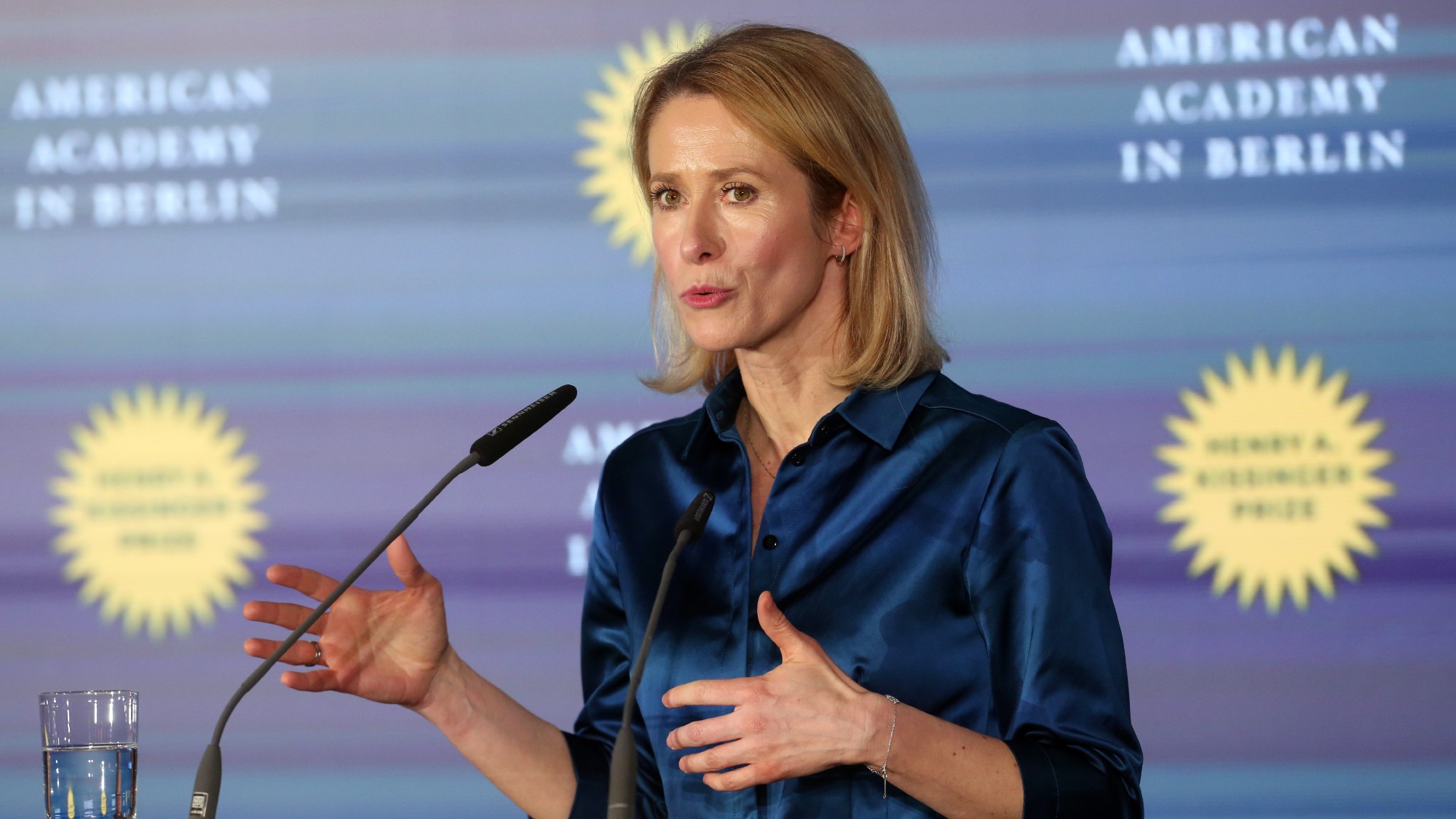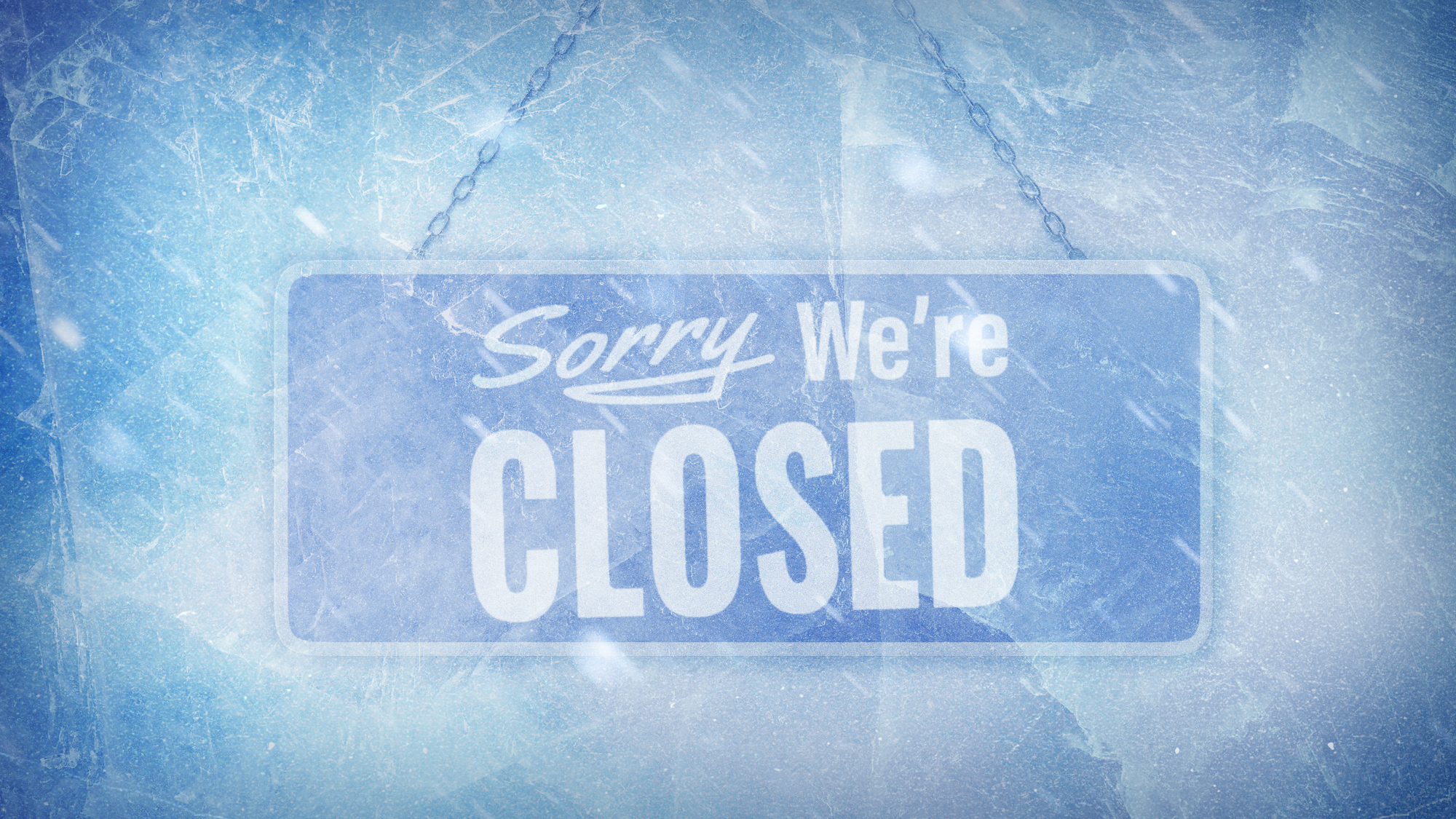Kaja Kallas: the EU's new chief diplomat shaping the future of European defense
The former Estonian Prime Minister's status as an uncompromising Russia hawk has gone from liability to strength


A free daily email with the biggest news stories of the day – and the best features from TheWeek.com
You are now subscribed
Your newsletter sign-up was successful
Former Estonian Prime Minister Kaja Kallas is making waves as the European Union's top foreign policy official. At a time of rising tension between the EU and the U.S. and a fortifying bloc of authoritarian states led by Russia, Kallas' role has suddenly taken on even greater importance. Her journey from the obscure leader of a small, embattled democracy to a bulwark against Russian expansionism has placed her front and center in what is now perhaps the global community's most important fault line.
From the USSR to democratic leader
Kallas, 47, was born in 1977 when Estonia was still under occupation as a Soviet Socialist Republic (SSR), as it had been since 1940. Her mother, grandmother and great-grandmother had been "sent to Siberia under Stalin's mass deportations of Baltic citizens," said The New Statesman, where they were exiled for ten years. "I think every Estonian family has a similar story to tell," said Kallas at ERR News.
Kallas was a member of the Estonian parliament as a member of the center-right Reform Party between 2011 and 2014 and after a stint in the European Parliament became the Reform Party leader in 2018. When Estonian Prime Minister Juri Ratas resigned following a corruption scandal in 2021, Kallas put together a coalition to take over as prime minister, becoming the first woman in the country's history to serve in that role.
The Week
Escape your echo chamber. Get the facts behind the news, plus analysis from multiple perspectives.

Sign up for The Week's Free Newsletters
From our morning news briefing to a weekly Good News Newsletter, get the best of The Week delivered directly to your inbox.
From our morning news briefing to a weekly Good News Newsletter, get the best of The Week delivered directly to your inbox.
Russia's 2022 invasion of Ukraine would "dominate her time in office and has been the making of her global reputation," said The Guardian. Her stance was that "Russia is a revanchist imperial power" and that to capitulate to Russia's threats would be to "give into the fear." Under her leadership, Estonia backed Ukraine in the war, which Kallas believed represented "a turning point in European history." She felt that Putin's invasion "must be defeated at all costs and without compromise," said The New York Times.
Unlike many leaders who guided their countries through the period following the Covid-19 pandemic, Kallas' and her party won reelection in 2023, "beating out a far-right rival that had campaigned against further arms deliveries to Ukraine," said Le Monde. The win was a rare feat in the post-pandemic period during which opposition parties "unseated incumbents or lodged in-some-cases historic election gains against a global backdrop of inflation and agitation," said Semafor. Shortly after, Kallas landed in hot water when media reported that her husband was involved in a "company that indirectly did business in Russia after the full-scale invasion of Ukraine," said The Associated Press.
A hawkish foreign policy chief for an EU in turmoil
A year later Kallas was in the running for high representative of the European Union for Foreign Affairs and Security Policy. The "press frequently refers to her as 'Europe's new Iron Lady,'" who may be well-positioned to "force the EU to adapt and finally exploit its own economic strength and build out its own defense capabilities," said Foreign Affairs. As the EU's top diplomat, Kallas would have to "balance the interests of the EU's 27 countries, each of which has traditionally enjoyed a veto on matters of foreign affairs," said Politico. The "post has no real power," meaning that Kallas will be "forced to spend an inordinate amount of time in turf battles with other branches of the Brussels machinery," said Responsible Statecraft.
The election of Donald Trump as U.S. president in November unexpectedly boosted the importance of Kallas' post. When President Trump sided with Russia's narrative of the conflict in February 2024 and dressed down Ukrainian President Volodymyr Zelenskyy at the White House, it opened a "gaping rift between the U.S. and its traditional allies in Europe over the war," said The Guardian. Kallas will also have to manage EU disagreement about Russia policy and defense, because her hardline stance on Russia has "left her out of step with Spain and Italy, who do not share her assessment of Moscow as an imminent threat to the EU," said Politico.
A free daily email with the biggest news stories of the day – and the best features from TheWeek.com
David Faris is a professor of political science at Roosevelt University and the author of "It's Time to Fight Dirty: How Democrats Can Build a Lasting Majority in American Politics." He's a frequent contributor to Newsweek and Slate, and his work has appeared in The Washington Post, The New Republic and The Nation, among others.
-
 The ‘ravenous’ demand for Cornish minerals
The ‘ravenous’ demand for Cornish mineralsUnder the Radar Growing need for critical minerals to power tech has intensified ‘appetite’ for lithium, which could be a ‘huge boon’ for local economy
-
 Why are election experts taking Trump’s midterm threats seriously?
Why are election experts taking Trump’s midterm threats seriously?IN THE SPOTLIGHT As the president muses about polling place deployments and a centralized electoral system aimed at one-party control, lawmakers are taking this administration at its word
-
 ‘Restaurateurs have become millionaires’
‘Restaurateurs have become millionaires’Instant Opinion Opinion, comment and editorials of the day
-
 Witkoff and Kushner tackle Ukraine, Iran in Geneva
Witkoff and Kushner tackle Ukraine, Iran in GenevaSpeed Read Steve Witkoff and Jared Kushner held negotiations aimed at securing a nuclear deal with Iran and an end to Russia’s war in Ukraine
-
 Kurt Olsen: Trump’s ‘Stop the Steal’ lawyer playing a major White House role
Kurt Olsen: Trump’s ‘Stop the Steal’ lawyer playing a major White House roleIn the Spotlight Olsen reportedly has access to significant US intelligence
-
 ICE eyes new targets post-Minnesota retreat
ICE eyes new targets post-Minnesota retreatIn the Spotlight Several cities are reportedly on ICE’s list for immigration crackdowns
-
 ‘The mark’s significance is psychological, if that’
‘The mark’s significance is psychological, if that’Instant Opinion Opinion, comment and editorials of the day
-
 Vietnam’s ‘balancing act’ with the US, China and Europe
Vietnam’s ‘balancing act’ with the US, China and EuropeIn the Spotlight Despite decades of ‘steadily improving relations’, Hanoi is still ‘deeply suspicious’ of the US as it tries to ‘diversify’ its options
-
 Gavin Newsom and Dr. Oz feud over fraud allegations
Gavin Newsom and Dr. Oz feud over fraud allegationsIn the Spotlight Newsom called Oz’s behavior ‘baseless and racist’
-
 Does standing up to Trump help world leaders at home?
Does standing up to Trump help world leaders at home?Today’s Big Question Mark Carney’s approval ratings have ‘soared to new highs’ following his Davos speech but other world leaders may not benefit in the same way
-
 Businesses are caught in the middle of ICE activities
Businesses are caught in the middle of ICE activitiesIn the Spotlight Many companies are being forced to choose a side in the ICE debate
